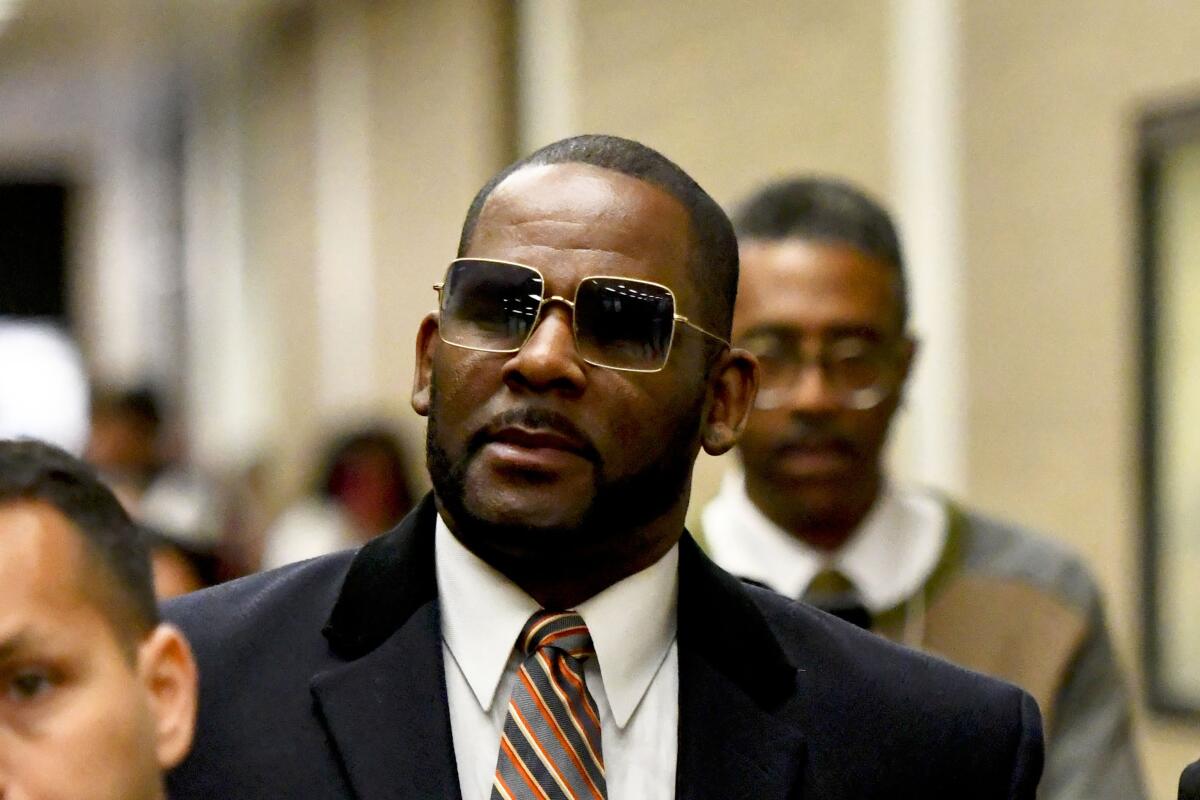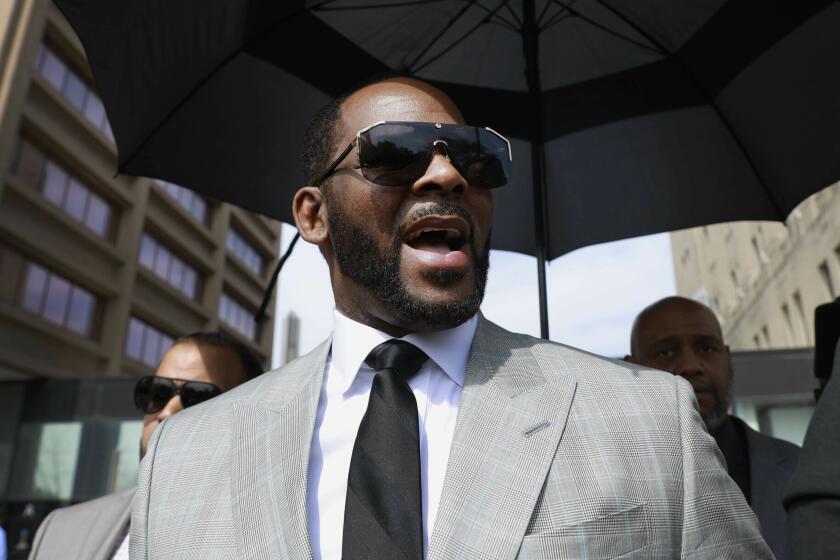R. Kelly convicted on many counts, acquitted of trial fixing

CHICAGO — A federal jury on Wednesday convicted R. Kelly of several child pornography charges in his hometown of Chicago, delivering another legal blow to a singer who used to be one of the biggest R&B stars in the world.
Kelly, 55, was found guilty on three counts of child pornography but was acquitted of a conspiracy to obstruct justice charge accusing him of fixing his state child pornography trial in 2008.
The decision comes after a federal judge in New York sentenced Kelly to 30 years in prison in June for racketeering and sex trafficking. Based on that sentence, he won’t be eligible for release until he is around 80.
The Chicago trial was, in many ways, a do-over of Kelly’s 2008 child pornography trial, with a key video critical to both.
The legal challenges for Kelly — who rose from poverty on Chicago’s South Side to become a Grammy-winning superstar — are not yet over. Two further trials are pending; one in Minnesota and another in state court in Chicago.
Jurors have begun deliberating in R. Kelly’s federal trial in Chicago on charges accusing him of making child pornography and rigging his 2008 child porn trial.
Kelly, who is known for his smash hit “I Believe I Can Fly” and for sex-infused songs such as “Bump n’ Grind,” sold millions of albums even after abuse allegations began circulating in the 1990s. Widespread outrage emerged after the #MeToo reckoning and the 2019 docuseries “Surviving R. Kelly.”
Jurors began deliberating Tuesday after Judge Harry Leinenweber gave them instructions, including explicit descriptions of what constitutes sexual abuse.
Early Wednesday, jurors wrote several questions to the judge, at least one indicating the panelists may be grappling with some of the case’s legal complexities.
One asked if they had to find Kelly both enticed and coerced minors, or that he either enticed or coerced them. Over objections from Kelly’s lawyer, the judge said they only need to find one.
In closing arguments Tuesday, Kelly attorney Jennifer Bonjean likened the government’s testimony and evidence to a cockroach and its case to a bowl of soup.
R. Kelly’s lawyers began mounting a defense against federal charges of child pornography, enticement of minors for sex and fixing his 2008 state trial.
If a cockroach falls into soup, she said, “you don’t just pull out the cockroach and eat the rest of the soup. You throw out the whole soup,” said told jurors
“There are just too many cockroaches,” she said.
In her rebuttal Tuesday, prosecutor Jeannice Appenteng told jurors to remember the girls and women who have accused Kelly of abuse.
“When you are in the quiet of the jury room, consider the evidence in light of who is at the center of this case. Kelly’s victims: Jane, Nia, Pauline, Tracy and Brittany,” Appenteng said, referring to five Kelly accusers named in charging documents by pseudonyms or their first names.
As Kelly’s fame boomed in the mid-1990s, Appenteng said, his inner circle increasingly focused on doing what the performer born Robert Sylvester Kelly wanted.
“And ladies and gentlemen, what R. Kelly wanted was to have sex with young girls,” she said.
Kelly, 55, was convicted of racketeering and sex trafficking in New York in June and sentenced to 30 years in prison.
Bonjean described Kelly as a flawed genius who has been functionally illiterate since childhood and was ill-equipped to navigate his celebrity and growing wealth. She said that he was abused as a child also deeply affected him.
More to Read
Sign up for Essential California
The most important California stories and recommendations in your inbox every morning.
You may occasionally receive promotional content from the Los Angeles Times.












